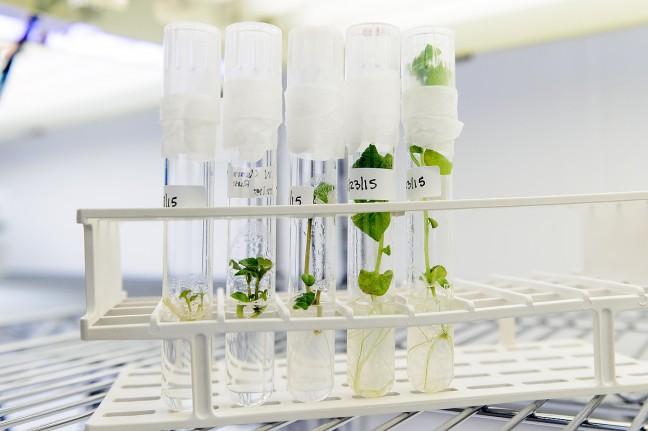In 2011, the International Energy Agency predicted we would pass the “point of no return” by 2017, based on the then-levels of carbon emissions and rapidly advancing carbon-centric infrastructure and technology.
This is not a party we should have been early to.
Last week, the Mauna Loa Observatory atmospheric baseline station in Hawaii observed carbon dioxide levels of more than 400 parts per million, the point of no return, for the month of September. It wasn’t the first time, but it was significant. Historically, September brings some of the lowest emissions of the year.
According to Climate Central, “September is usually the month when carbon dioxide is at its lowest after a summer of plants growing and sucking it up in the northern hemisphere. As fall wears on, those plants lose their leaves, which in turn decompose, releasing the stored carbon dioxide back into the atmosphere.”

In the wake of this news, scientists across the country concluded if September had these high levels, having a shot of turning back would be nearly impossible. Even if we switch to clean energy tomorrow, the amount of damage done to our planet is irreversible.
This disturbing milestone comes at a time when it seems the globe is soaked in frustration and tears. The situation in Syria has reached yet another height as ISIL rages on in the Middle East, the Venezuelan economic crisis continues to tear apart the nation and police violence in the U.S. most recently took the life of a 6-year-old boy with autism.
Though environmental disaster is not a cause or result of any of these tragedies, reaching this critical point better be a loud and clear wake-up call around the world. We are tearing apart land we fight battles on, destroying the ground we walk on, ignoring as our planet has begged us to pay it a moment’s notice.
Climate change may not be the most pressing issue we face as a nation. But it is the most pressing issue we face as humans.
Heads up, no matter who you vote for or which tax plan you defend, if my kids won’t ever see a polar bear, neither will yours.
Once a year, a celebrity will give an impassioned speech at the Oscars, or a news anchor will break down in tears over the immediacy of this situation, or the media team at a grassroots organization for young activists will put out an astonishingly vivid video clip, and we’ll all share the three minute tidbit on Facebook and make sure to recycle for a few days. Soon we move on. The world keeps turning.
But here’s the thing — it won’t.
Climate change is not a theory. It is a fact. There’s no such thing as being a “climate change denier,” so don’t waste your breath on that one when we have a shorter word for it — brainless.
Showing a concrete and tangible commitment to enacting policies that mitigate the effects of climate change should be a pre-requisite to running for public office, whether it’s the mayor’s office in a small town in Wisconsin or the president. That burden should fall on the shoulders of the nations who have contributed the most to this disaster, while simultaneously benefiting from it.
No one wants to talk about climate change for more than a few minutes because frankly, it’s the easiest thing to forget about. Ice caps could be melting all day long (they are) and we wouldn’t feel a thing. It’s so easy to believe this won’t affect us for ages, and by that time we’ll have the technology to get along just fine.
But the planet doesn’t work that simply. We have a debt to pay, and that debt comes with a high interest rate. The International Energy Agency noted long ago that the longer we wait to invest in clean energy, the higher the cost will be once we ultimately do. We don’t have the technology to recreate bees or relocate the thousands of people who will ultimately be displaced when their homes are below sea level, nor is that technology coming up on us within the next few decades. These aren’t problems our distant decedents will be addressing for the first time — it will be us.
Each month of 2016 has averaged record-breaking temperatures, setting us up to head into the 10th month of the hottest year in recorded history. At the Paris Climate Accord last December, when deciding on acceptable above-average temperature limit, participating countries agreed to 1.5 degrees Celsius.
Paris to Madison: UW researchers at international climate summit explain local implications
Global temperature this year has been 1.38 degrees higher than average. Our toes are about to slip over the line.
Take this seriously. Vote on this and refuse to compromise. Invest money. Among a hundred pieces of bad news on Facebook, you probably still have one friend passionately sharing videos of the incredible research happening in this field, starting at the Nelson Institute for Climatic Research at the University of Wisconsin.
Nations in conflict often struggle to reach resolution because of a complete lack of empathy and ability to relate to one another. In both international wars and domestic conflict, a perceived lack of commonality perpetuates tragedy.
The good news is this is one we can all get behind. We all need clean oxygen. We all need water. We all need trees. Perhaps we can get back to senseless confrontation when we’ve climbed a few floors up Maslow’s hierarchy to a cleaner, greener and cooler world.
Yusra Murad (ymurad@wisc.edu) is a junior studying psychology, business and global health.


